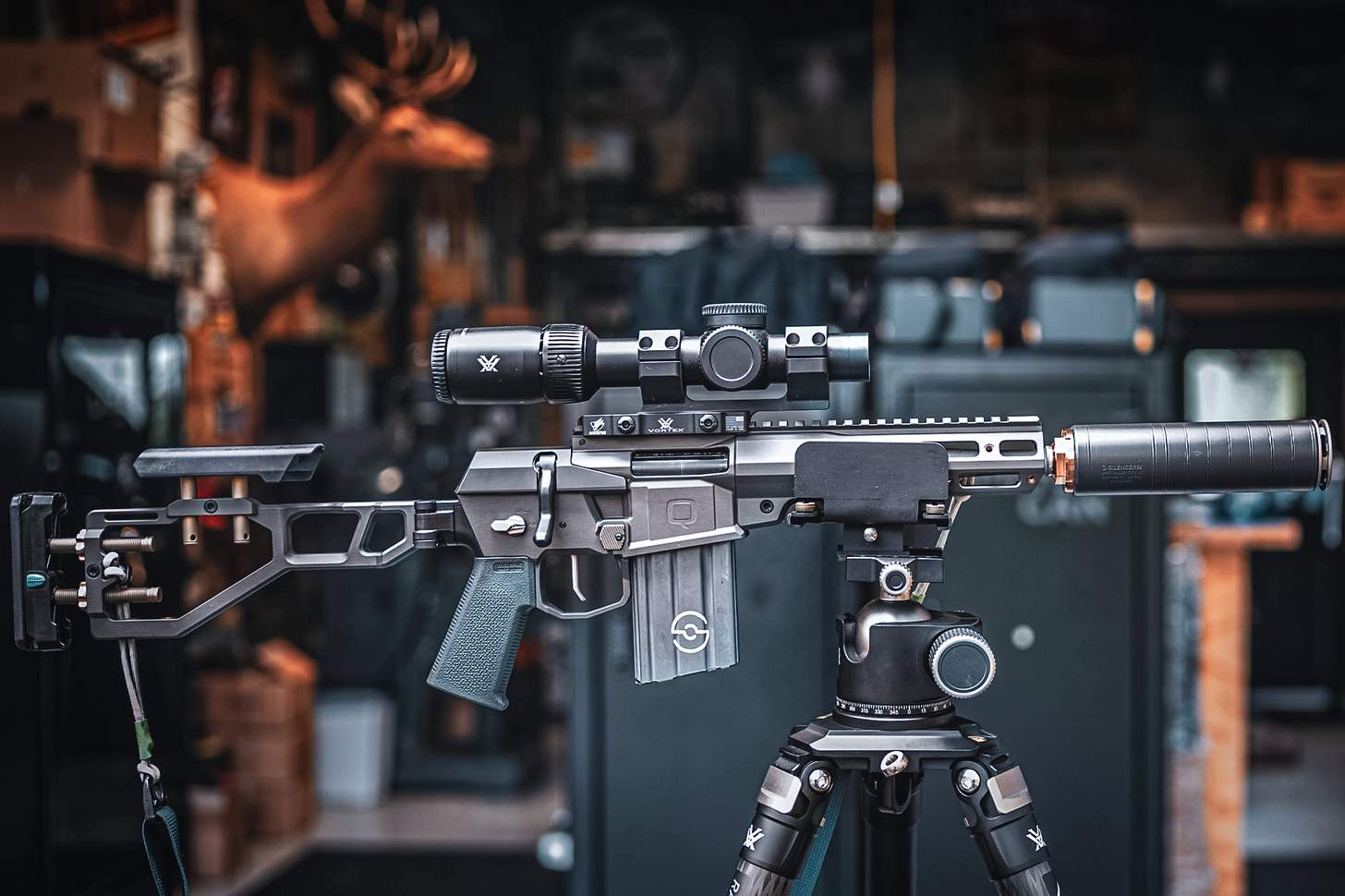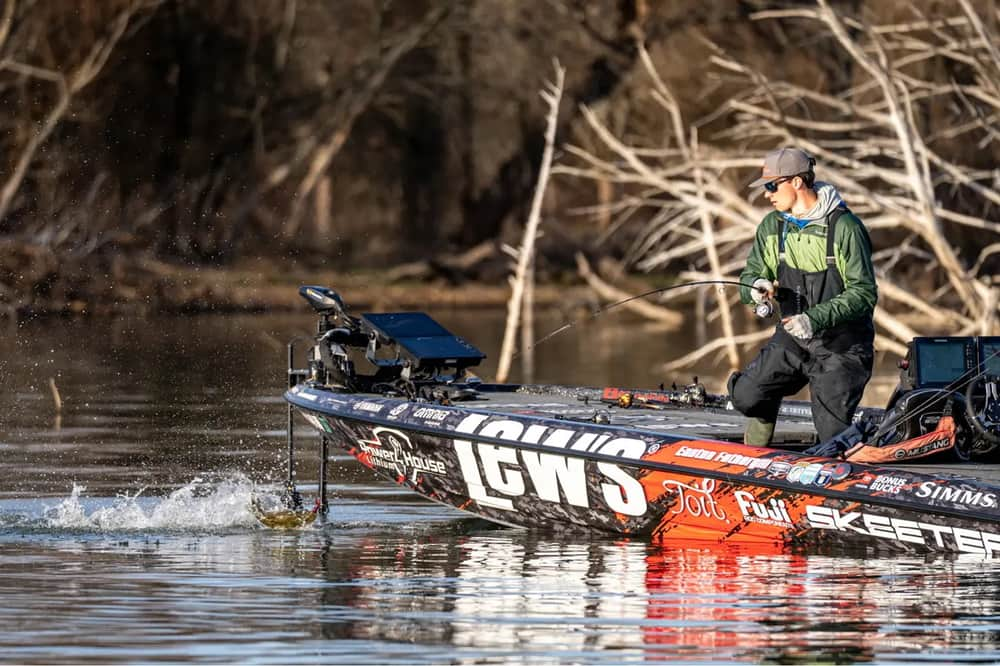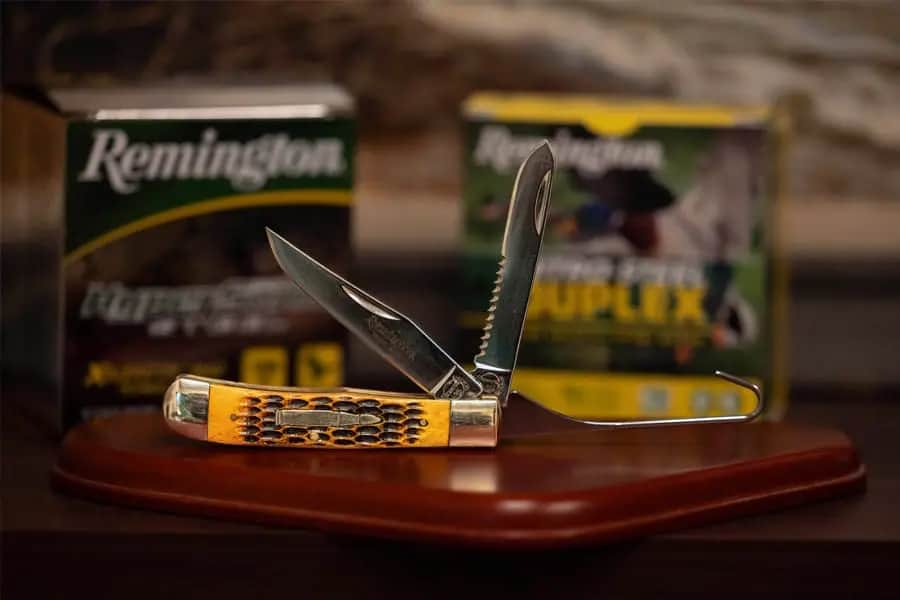Silencer Shop, the Silencer Shop Foundation (SSF) is in the midst of a fight to finally remove the regulations put in place on silencers (suppressors) by the National Firearms Act since 1934.
Now that the tax requirement has been removed, SSF contents the regulations are legally baseless and is acting on that position with the Silencer Shop Foundation v. ATF suit currently working its way through the courts. This is Part 3 of 3 in a series exploring the details of the suit, what it hopes to accomplish, and finally, what things will look like if its successful.
Read Part 1 and Part 2 of this series here:
Part 1: How a Hunter and Engineer Aims to Take Down Nearly a Century of Silencer Regulation
Part 2: SSF: Deleting 90 Years of Unconstitutional NFA Regulations
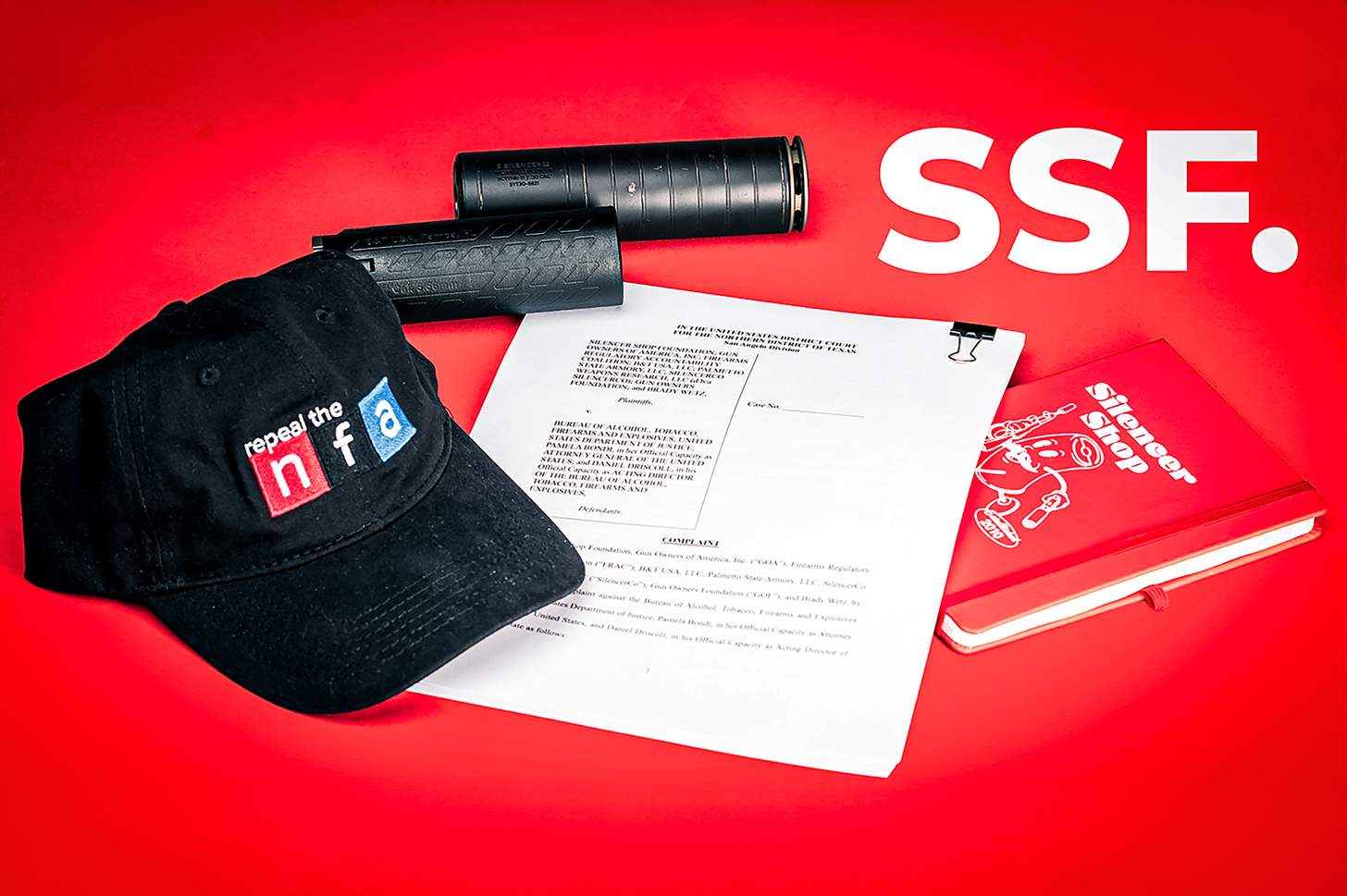
We have previously explored the Silencer Shop Foundation’s One Big Beautiful Lawsuit filed against the Bureau of Alcohol, Tobacco, Firearms and Explosives (ATF), in detail as it aims to end National Firearms Act (NFA) regulations once and for all.
The lawsuit was filed after the passage of President Donald Trump’s One Big Beautiful Bill, which included language eliminating the $200 tax on silencers, short-barreled rifles (SBRs), short-barreled shotguns (SBSs), and firearms classified as other weapons (AOWs) under the NFA.
That legislation was a good first step, and it created an opportunity to fully eliminate the NFA. After all, the legal basis for enforcing the NFA hinges on enforcement of the associated tax. Without a tax, the NFA no longer applies to those items.
In fact, that’s exactly what the Silencer Shop Foundation argues in Silencer Shop Foundation v. ATF.
“Enacted in 1934, the National Firearms Act (‘NFA’) is premised on Congress’s taxing power,” plaintiffs argue in the lawsuit. “But the NFA no longer imposes any tax on the vast majority of firearms it purports to regulate.
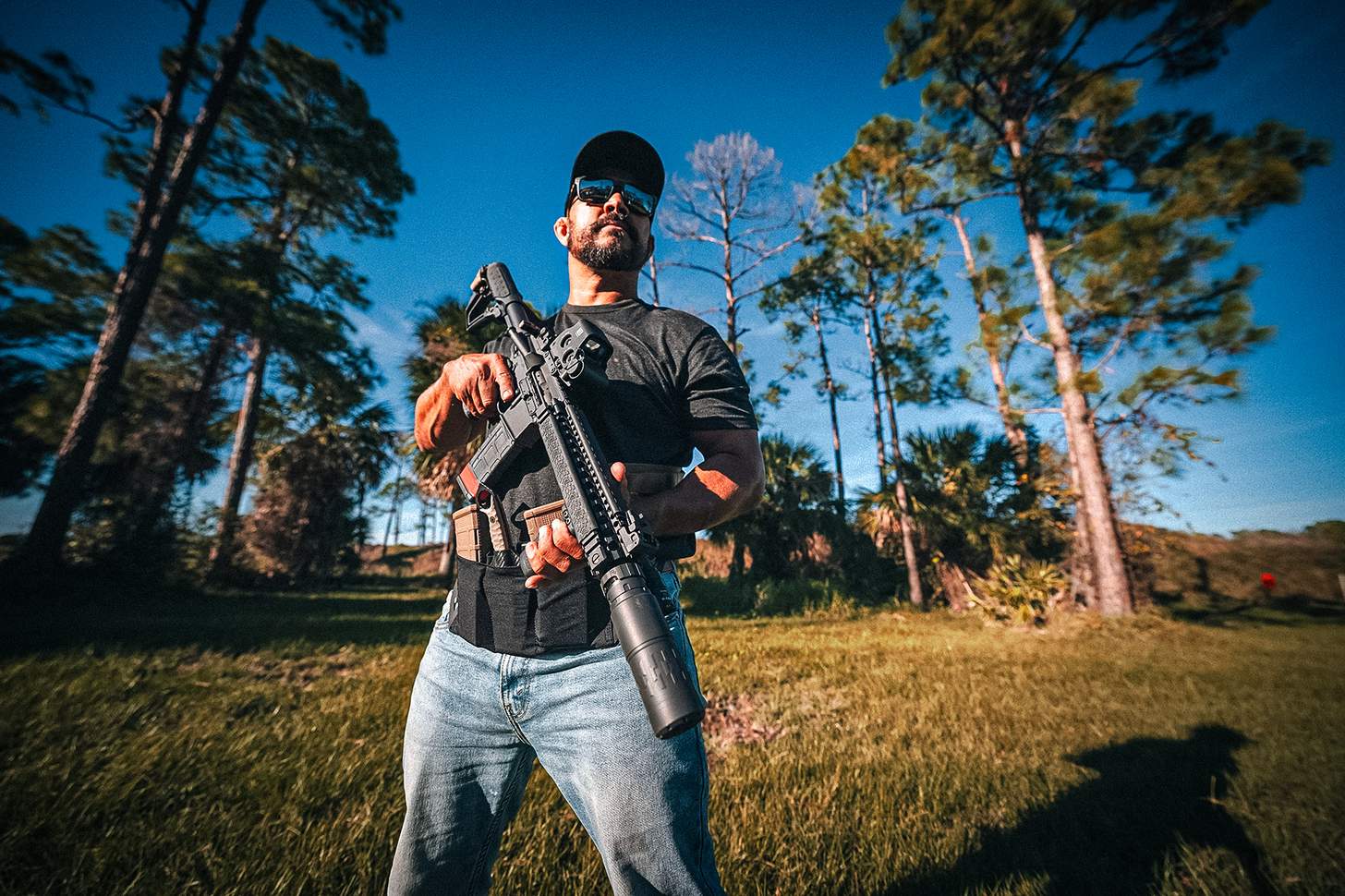
"The One Big Beautiful Bill Act, which Congress and the President enacted on July 4, 2025, zeroes the manufacture and transfer tax on nearly all NFA-regulated firearms.
"That means the constitutional foundation on which the NFA rested has dissolved. And the NFA cannot be upheld under any other Article I power. With respect to the untaxed firearms, the Act is now unconstitutional.”
When Will Silencer Deregulation Happen?
Silencer Shop founder and CEO Dave Matheny has been advocating for silencer deregulation since founding the company 15 years ago.
“I’ve said for years that to get this stuff deregulated, step one is grow the industry,” Matheny said. “Once you grow the industry to a point where enough people are exposed to silencers, that puts more pressure on members of Congress to actually get something passed.
"But they're not going to put their necks on the line for something that nobody cares about. That's just not how politicians think. I think the industry is finally to a point where we can make enough noise that we can actually get something, as we saw earlier this year.”
Matheny hopes that someday the NFA will be completely disbanded and many things will improve. But he’s just not sure if or when that will happen.
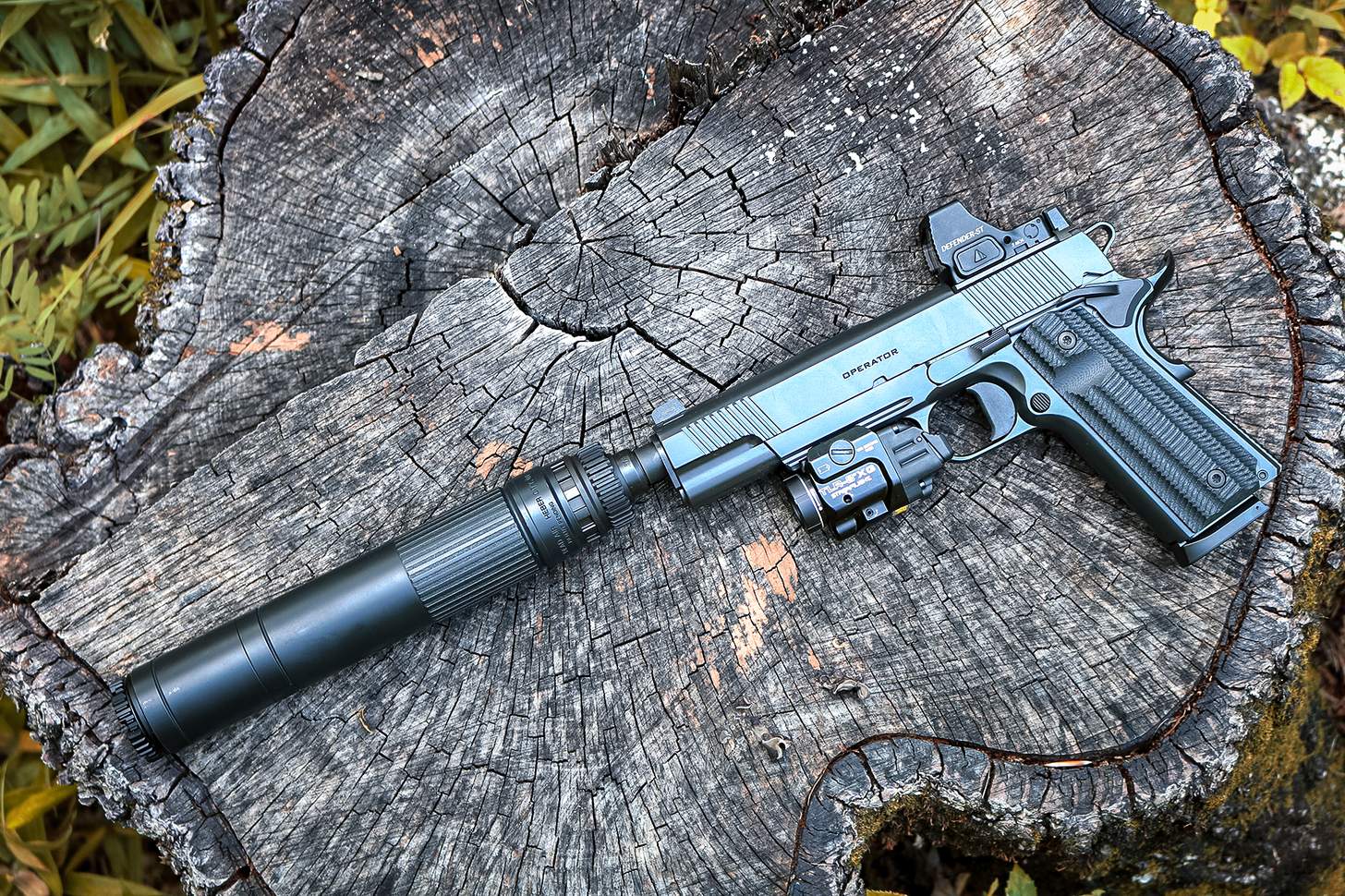
“Machine guns make that touchy, but I think we should be shooting for NFA to go away anyway,” Matheny said. “Even if it just regulated machine guns, it would be a danger to have around because politicians could just add in whatever item they want with machine guns.
“Unfortunately, the machine gun issue is not being driven by what's constitutional. It's being driven by popular opinion, and that’s just the wrong way to look at it.”
The Future Outlook If The NFA Goes Away
Indeed, the nation without the NFA would look far different in many ways. I asked Matheny what those differences would likely entail.
“I think when you look at especially SBRs, I think the AR-15 and other semi-automatic rifle market is going to move largely to what’s currently considered to be an SBR, because there are a lot of guns where less than a 16-inch barrel makes a lot of sense,” he said.
“Anywhere from 5- to 14-inch barrels are the norm for a lot of those AR-style platforms. For SBSs, I’m not sure how big of an impact that will have. Most shotguns are probably used for hunting so shorter barrels aren’t an advantage.
"The home-defense models will probably move to SBSs, but I'm just not sure how much that'll move the needle.”
As for silencers, Matheny believes that without the NFA, shooters will be living in a far quieter world than ever in the past.
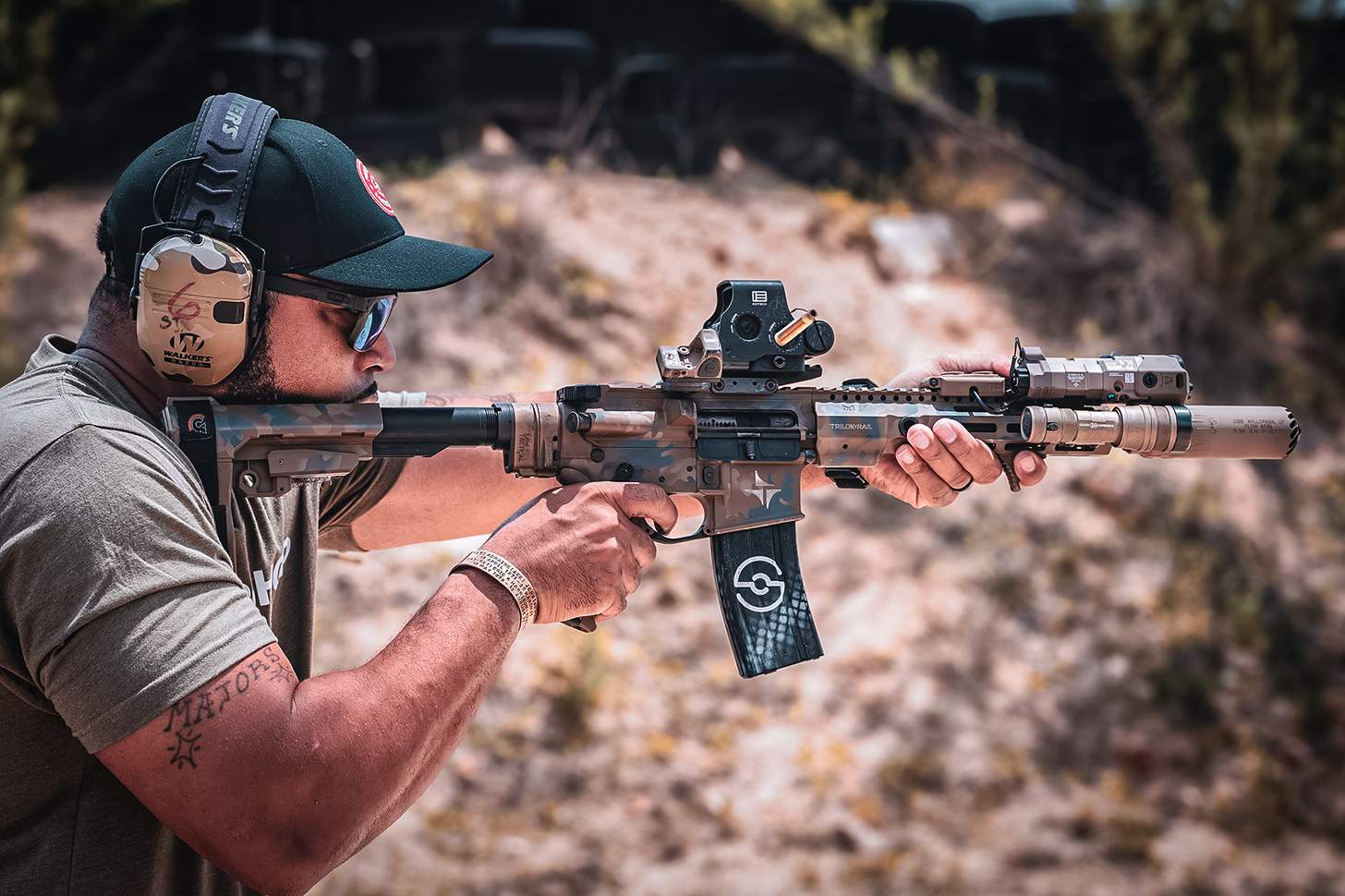
“For silencers, it’ll be huge because the ownership of them will greatly increase,” he said. “Last year there were about 750,000 silencers sold for the entire year, whereas gun sales ran about 2 million per month, if you look at NICS checks.
"Many of the sales are going to be integrally suppressed guns. So, you’ll buy a Ruger American, and it’ll have a suppressor built into the barrel and will just come from the factory that way," he said. "I feel like, for every three guns sold, you'll sell two suppressors. So, it'll be a significant bump in the suppressor market.”
The Pros of Suppressor Ownership Rising
When considering the negatives of fully deregulating suppressors, Matheny admits that it’s hard to think of even one.
“There's just not a whole lot of downside to getting suppressors out of there,” he said. “Ownership becomes higher, public awareness becomes higher, people become more aware of what they are because every gun they buy will have a suppressor on it.
"Now, a lot of times when you buy a rifle it will come with a scope. In the future, it’ll come with a scope and a suppressor.”
Deregulation of silencers, SBRs, SBSs and AOWs would also open up great new opportunities for retailers who might have avoided selling them to avoid the hassle caused by the NFA.
“I think pretty much at every level people are already getting into suppressors, so the market is growing fast, which is good,” Matheny said. “The more the market grows, the more awareness there is, the easier it is to pass legislation.
"But I think it becomes a no-brainer for those who haven’t sold them to get into silencers. They’d just be dealing with them just like they would deal with the sale of a gun.”
It Also Depends on Your Home State
There are issues with completely eliminating the NFA, especially regarding state regulations. About 16 states — half of the states where silencers are currently legal to own — would have to change their laws or silencers would become de facto illegal items. That’s because their laws are written to prohibit silencers unless they are registered under the NFA.
“So, if the NFA registration goes away, the only thing that stands is the ‘silencers are illegal’ language,” Matheny said. “We don't really expect the lawsuit to resolve itself super-fast anyway. If it takes two or three years to get this through the courts, that's not horrible, because it gives us time to work to fix the laws in those states.”
The key, Matheny said, is changing the state laws from, “Silencers are illegal unless registered under the NFA,” to, “Silencers are legal as long as they are registered with the NFA.” It sounds like a subtle change, but it’s not.
“When the NFA goes away, they’d be legal then,” Matheny said. “Or in some of the more liberal states, we could change it to say, ‘Silencers are illegal unless the silencer is in compliance with federal law.’ Then, when the NFA is gone, they would be legal to own in those states.”
Final Notes On The One Big Beautiful Lawsuit
As the "One Big Beautiful Lawsuit" progresses through the court system, the Silencer Shop Foundation will continue to work both legislatively and in court to further deregulate silencers and other NFA items.
Starting in January, shooters can buy silencers without paying the $200 tax, although the other NFA requirements still apply.
Eventually, the NFA will likely be completely abolished and relegated to the dustbin of history where it belongs. When it happens, we’ll live in a quieter, more neighbor-friendly world where silencers will play a big role in nearly everyone’s shooting and hunting experiences.
Editor’s Note: Hook & Barrel readers are invited to join the effort to completely demolish the NFA. To learn more and keep up with Silencer Shop Foundation, please visit ssf.org.
Read all three parts of this series on the Silencer Shop Foundation's efforts to overturn the NFA.
